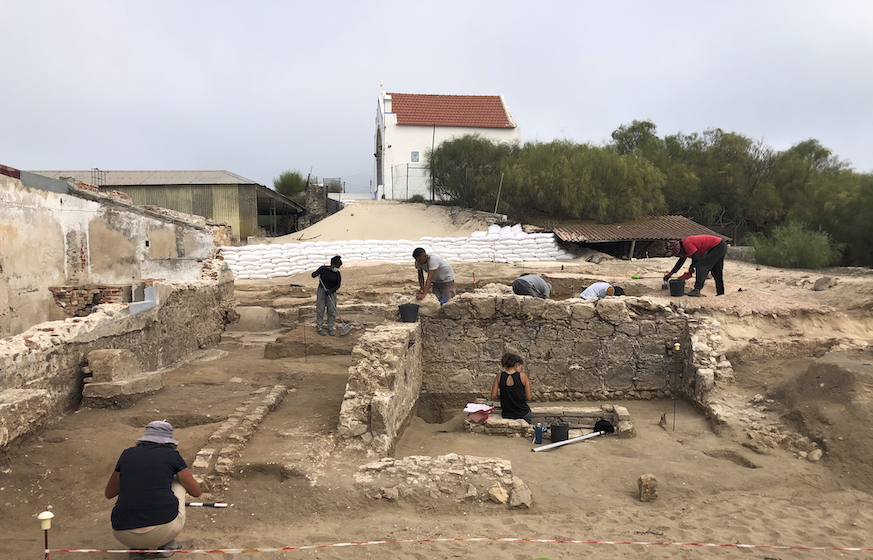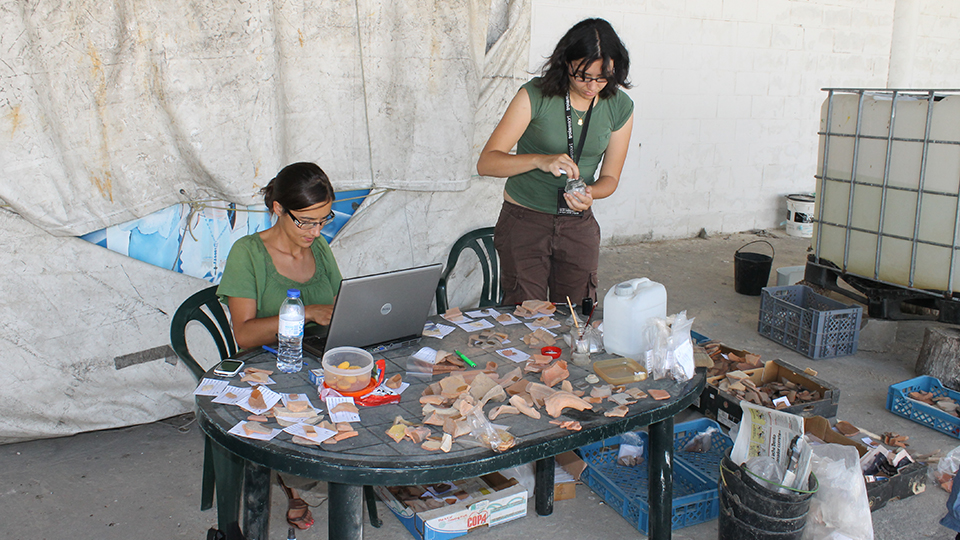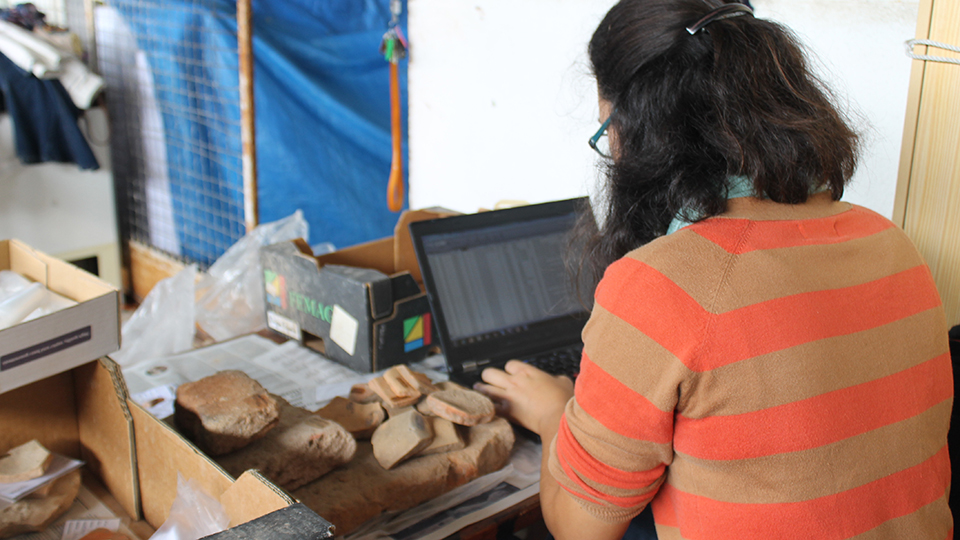| Field School |
|---|
 |
| On site |
| No previous archaeology experience is required, as students will be taught about excavation methods and techniques used on site. Teaching methods will be hands-on exercises with experienced professionals instructing on a variety of topics including site safety, setting up the excavation, heavy digging and correct use of different tools (eg. pickaxe, shovel, brush), trowelling, context recording, planning, section drawing, construction of Harris Matrices, treatment of finds and environmental sampling. These skills will be taught within the process of the research dig and students are expected to participate in all aspects of the excavation process. |
 |
| In the lab |
| All finds and environmental samples recovered from the excavation are processed each day in the field lab. Students will be taught about how to wash them correctly, sort and label finds, including ceramics, bones, seeds, metals, glass and charcoal. The most significant ceramic finds will be illustrated. Students might also be involved in a floatation programme, from sampling on site to sample processing in the lab. |
 |
| Lectures and field trips |
| Brief lectures will be presented every week on topics relevant to the post-excavation work being conducted. They are aimed to combine the practical experience in the lab with the theoretical background. Lectures are generally related with finds processing activities, illustration, conservation, ceramic analysis, Roman pottery typologies, how to do a pottery inventory. Field trips will be carried out to neighbouring towns, such as Setúbal and Alcácer do Sal, also focusing on eventual nearby archaeological sites being excavated during our stay in Tróia. Sandwich lunches must be prepared and brought home for field trips. |
| General Schedule | |
|---|---|
| Mon-Fri: | 7am – 7:30am – breakfast
8am – 1pm (excavation) – 30min break at 10am 1.30pm – lunch 4pm – 7pm (lab work, lectures) 8pm – dinner |
| Saturday: | Free day (Only breakfast is provided). |
| Sunday: | Field Trips |